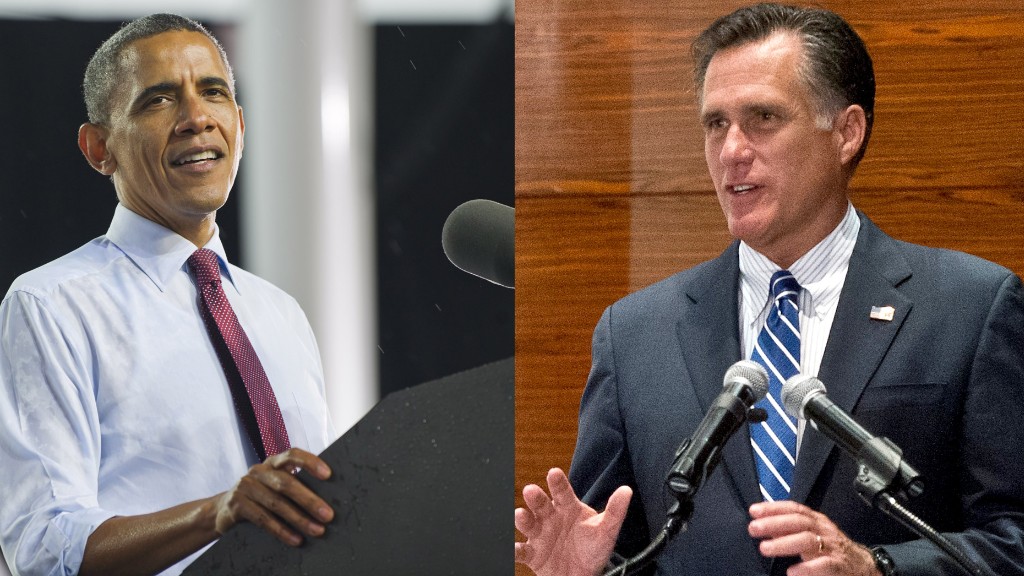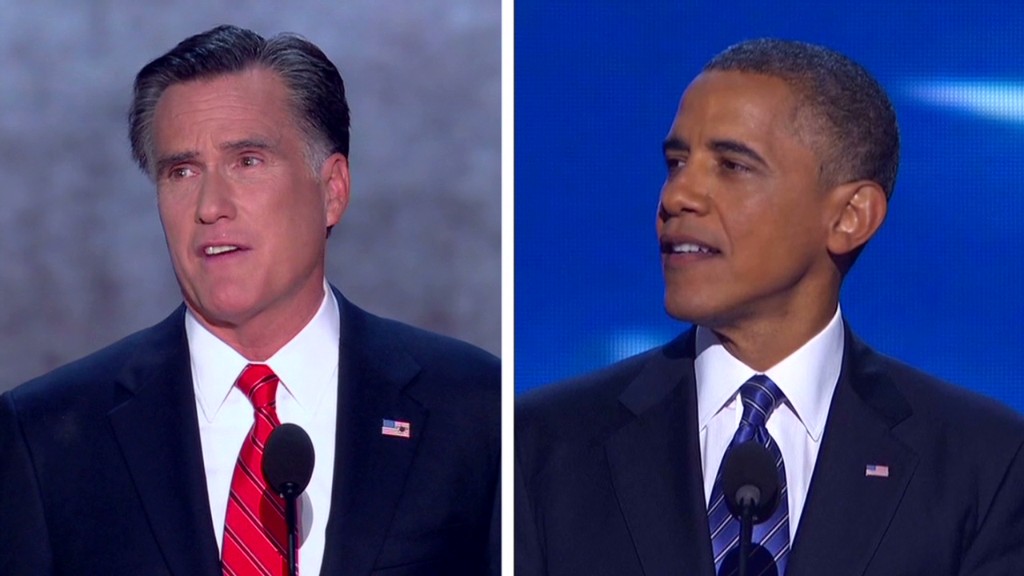
It's one of the biggest decisions facing Congress: what to do about the fiscal cliff -- the $7 trillion worth of tax increases and spending cuts that start taking effect next year.
Two major sticking points: whether to extend some or all of the Bush tax cuts and and how to replace the nearly $1 trillion in spending cuts.
Handled poorly, things will be a mess.
Handled smartly ... well, there likely will be just varying degrees of mess. That's because Congress has now left virtually no time to arrive at a thoughtful bipartisan resolution before the changes go into effect.
Lawmakers are too busy waiting for the results of the November election before they'll address the issue seriously.
So how would the two men vying for the White House in 2013 handle things?
Barack Obama: Tax on rich is key
Like many Democrats and Republicans, the president doesn't like the automatic, across-the-board spending cuts called for under the so-called sequester. He wants them replaced with "a balanced approach to long-term deficit and debt reduction," White House spokesman Jay Carney has said.
At the same time, the White House budget office said the president's senior advisers would "recommend" he veto any bill that seeks to avert the defense cuts while leaving intact the non-defense cuts or "fails to ask the most fortunate Americans to pay their fair share."
And Carney has said Obama will veto any package Congress sends him that extends the portion of the Bush tax cuts that apply exclusively to high-income households, such as the top two income tax rates.
Related: Fiscal cliff to help debt but cause recession
The president himself, however, hasn't used the word "veto." Instead, he has urged Congress to "work on those things we can agree on" -- namely, to extend the Bush tax cuts for the majority of Americans.
Elsewhere, Obama has not pushed for an extension of another key part of the fiscal cliff: the temporary 2% payroll tax cut passed at the end of 2010. But that doesn't mean he won't.
"We'll evaluate the question of whether we need to extend it at the end of the year when we're looking at a whole range of issues," Carney said earlier this month.
Mitt Romney: Give me 90 days
In an interview with Time Magazine's Mark Halperin in May, Romney said that if elected he would rather Obama and Congress postpone the tax increases and spending cuts for up to 90 days. That would give his new administration and the incoming Congress time to address the issues.

"I would like to be able to deal with these issues on a structural basis, on a permanent basis as opposed to a stopgap effort that would require unraveling and re-evaluation," he said.
Since then, the Republican presidential nominee has made it clear many times that he doesn't favor the nearly $500 billion in cuts to defense spending over the next decade that are called for under the so-called sequester. Indeed he doesn't favor any cuts to defense spending.
And he's also made it clear that he doesn't want the Bush-era tax cuts to expire for anyone.
At the same time, he has promised to balance the budget in eight years without touching defense or raising taxes.


